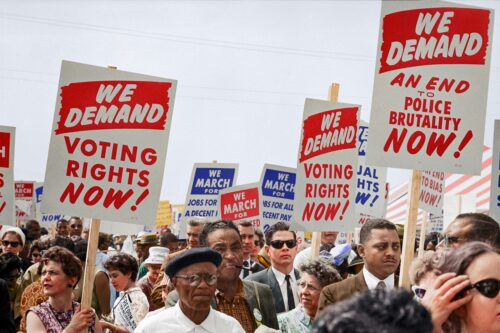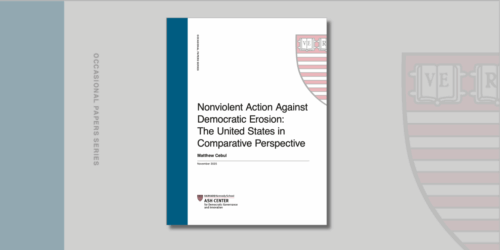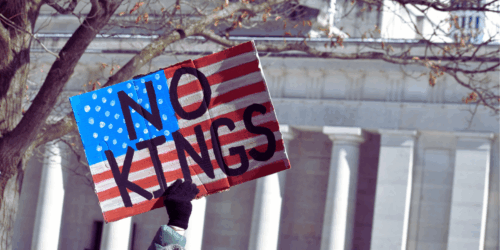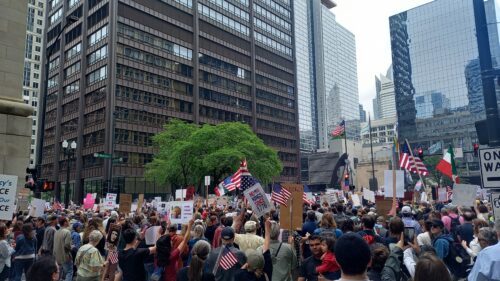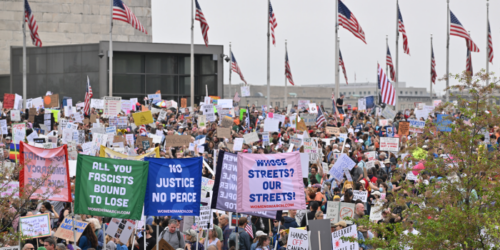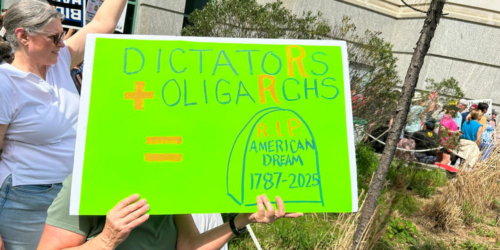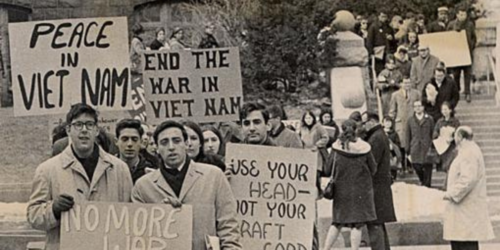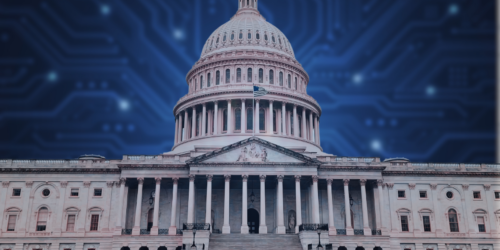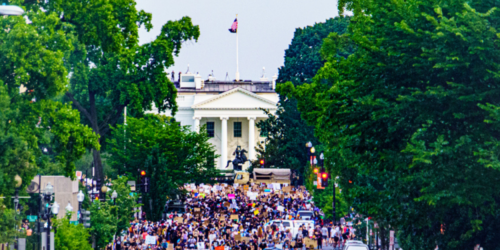
Erica Chenoweth
Frank Stanton Professor of the First Amendment
Protest is the bedrock of democracy. But why do people take to the streets, and how do protestors achieve change? At the Ash Center, we’re working to answer these questions.
From the Boston Tea Party and the U.S. civil rights movement to contemporary climate action demonstrations, civil protest is a fundamental tool for influencing political change. While protest movements are an indelible part of contemporary political life, little is often understood about what motivates people to take to the streets and how they achieve nonviolent political goals.
Our scholars analyze protest movements, learn from protestors themselves, and develop tools to help understand why some protests succeed and others fail.
Frank Stanton Professor of the First Amendment
Lecturer in Public Policy
Assistant Professor of Public Policy
Research Project Manager, Nonviolent Action Lab
Research Associate, Crowd Counting Consortium
Lead Research Fellow for the Nonviolent Action Lab, AY2025-2026
Policy Brief
Erica Chenoweth and Matthew Cebul analyze the global surge of Gen Z-led protest movements, showing how economic insecurity, exclusion from power, and corruption are driving youth mobilization worldwide.
Occasional Paper
In this report, Matthew Cebul, Lead Research Fellow for the Nonviolent Action Lab, examines the effectiveness of nonviolent action movements in supporting democratic resilience globally. Identifying challenges faced by nonviolent pro-democracy movements, Cebul offers key takeaways for combating accelerating democratic erosion in the US and abroad.
Article
In this op-ed, Liz McKenna examines the second ‘No Kings’ protest on October 18 and offers strategies for translating successful protest movements into influential policy change. She emphasizes the importance of sustained organizational efforts alongside protest activity to engage actors across partisan lines, building a broad coalition and a durable base for the movement.
Podcast
Archon Fung and Stephen Richer are joined by University of Pittsburgh’s Lara Putnam to discuss the recent No Kings protest movement.
Article
As organizers for No Kings 2 seek historic turnout on October 18, the broader pro-democracy movement has already broken new ground.
Commentary
Podcast
What does Columbia’s recent settlement with the Trump administration mean for higher education? Are the First Amendment rights of Columbia and other universities being infringed?
Podcast
What does Columbia’s recent settlement with the Trump administration mean for higher education? Are the First Amendment rights of Columbia and other universities being infringed?
Commentary
Contrary to conventional wisdom, the size and scale of anti-Trump protests this year have dwarfed those in 2017, and they have been extraordinarily peaceful. This article was originally published in Waging Nonviolence.
Commentary
Matthew Cebul and Sharan Grewal explain that dictators around the world have been emboldened by the Trump administration’s abandonment of democracy and human rights norms, but crackdowns may spark stronger and more unified pro-democracy movements.
Commentary
Archon Fung explores the history of student activism at Harvard and argues that such movements often bring a rare sense of “moral clarity” to universities nationwide — a crucial benefit of free speech and peaceful protest.
Commentary
Building effective channels for the interaction between AI developers and activist communities is critical for innovating social mobilization and strengthening civil society.
Feature
Erica Chenoweth shares a brief addendum to the Nonviolent Action Lab’s workshop held in December 2024 on how AI can influence social mobilization, for better or worse.
Feature
In response to the recent anti-democratic patterns in the United States, the Ash Center hosted a panel of Harvard scholars to discuss how civil society can resist democratic backsliding through social mobilization and organizing.
Video
In this webinar, panelists drew upon lessons from around the world about how civil society groups can protect and promote democracy and the rule of law during episodes of democratic backsliding.
